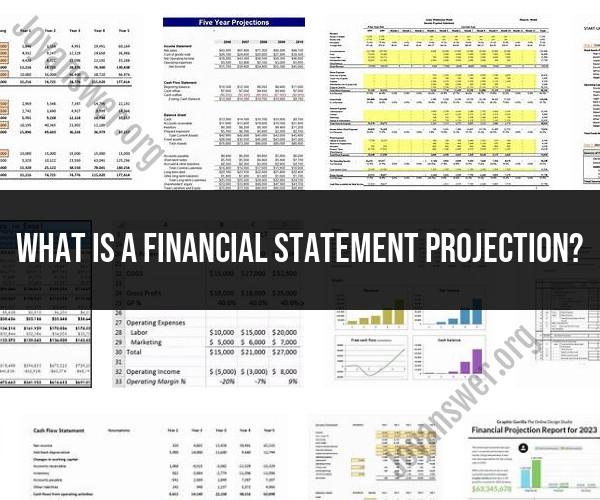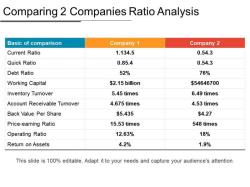What is a financial statement projection?
A financial statement projection, also known as a financial forecast or financial projection, is a forward-looking estimate of a company's future financial performance. It is typically based on historical financial data, current financial conditions, and assumptions about future economic conditions and business activities. Financial statement projections include estimates of a company's income statement, balance sheet, and cash flow statement for a specific period in the future, often for a year or more.
Here are the key components of a financial statement projection:
Income Statement Projection: This part of the projection estimates a company's revenue, expenses, and profitability over the forecast period. It includes items like sales revenue, cost of goods sold (COGS), operating expenses, taxes, and net income.
Balance Sheet Projection: The balance sheet projection reflects the company's expected financial position at the end of the forecast period. It includes assets (such as cash, accounts receivable, and inventory), liabilities (such as loans and accounts payable), and shareholders' equity.
Cash Flow Statement Projection: This part of the projection outlines how cash is expected to flow in and out of the business during the forecast period. It includes operating cash flow, investing cash flow, and financing cash flow. It helps assess a company's ability to generate and manage cash.
Financial statement projections are essential for various purposes, including:
Strategic Planning: Companies use projections to set financial goals, make strategic decisions, and plan for growth or cost reduction.
Securing Financing: Lenders and investors often require financial projections when evaluating loan applications or investment opportunities.
Budgeting: Projections serve as a basis for creating annual budgets and monitoring performance against those budgets.
Performance Evaluation: They help assess a company's actual financial performance against expectations, facilitating performance analysis.
Risk Assessment: Projections help identify potential financial risks and uncertainties that may impact the company's future.
Creating accurate financial statement projections requires a thorough understanding of the business, industry, and economic factors that could influence performance. It also involves making reasonable assumptions about variables like sales growth, expenses, and market conditions. These projections can be adjusted and updated regularly to reflect changing circumstances and improve their accuracy.












